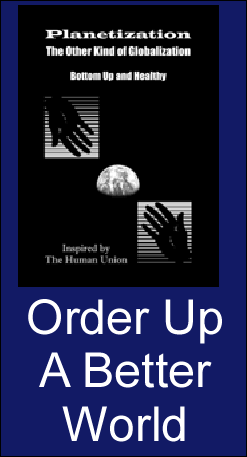-----------------------------
The Geneva-based International Commission of Jurists (ICJ) has said that any US-led attack on Iraq was illegal without UN Security Council backing. "In the absence of such Security Council authorisation, no country may use force against another country, except in self-defence against armed attack.” This rule was enshrined in the United Nations Charter in 1946 for a good reason: to prevent states from using force as they felt so inclined," said ICJ Secretary-General Louise Doswald-Beck.
Others like Richard Falk, Professor of International Law and Practice at the prestigious Princeton University in the United States, believe that in order to avoid a Security Council veto by France and possibly Russia, the United States and United Kingdom have confused the disarmament issue as a political and legal justification for removing Saddam Hussein.
”There is no pretence that international law supports such a war and little claim that the brutality of the Iraqi regime creates a foundation for humanitarian intervention,” writes Professor Falk.
British scholar, James Crawford, Whewell Professor of International Law at Cambridge University, says that while “international law has been used as a means of securing regime change in the past, for example Haiti under Cedras, it is a separate question whether the contemplated action has been authorized by the Security Council in Resolution 1441 and earlier resolutions."
War not justified under UN
The countries taking part in the war against Iraq are in breach of international law because they are acting without a further Security Council Resolution, argues British lawyer, Rabinder Singh.
To start with, all resolutions to date that have authorised force have used such phrases as “authorised to use all necessary means” and “take all necessary measures.” These phrases are missing from 1441 because all 15 states who unanimously passed the resolution did not believe they were voting for war.
Ramsey Clark, the former US Attorney General, is also on record as saying that “military attack on Iraq is obviously criminal; completely inconsistent with urgent needs of the peoples of the United Nations; unjustifiable on any legal or moral ground; irrational in light of the known facts; out of proportion to other existing threats of war and violence; and a dangerous adventure risking continuing conflict throughout the region and far beyond for years to come.”
While most international lawyers reject the claim that the UN resolution 1441 authorises the invasion of Iraq, there are a few that do not dismiss the idea completely.
Christopher Greenwood, professor of international law at the London School of Economics in Britain, believes “the authority to use force in Security Council Resolution 678 is revived by Security Council Resolution 1441. Resolution 678 authorizes the use of force for the restoration of international peace and security in the area. The Council has repeatedly held that Iraq's non-compliance with its legal obligations regarding disarmament poses a threat to international peace. The use of force is therefore lawful to achieve disarmament after 12 years of unsuccessfully attempting to achieve it by other means. Removing the present government of Iraq would be lawful if that were necessary to achieve disarmament.”
Greenwood draws attention to the phrase “for the restoration of international peace” in Resolution 678. Few agree that Iraq poses such a threat or is disrupting international peace. While the UN charter, articles 41 and 42 for instance, make it clear war is a matter of last resort and allows for pre-emptive strikes in the event of an imminent threat, it is not clear that war is a last resort in this case or that an attack is imminent.
”Before the US government can claim to be acting in self-defence, it must present compelling evidence that terrorist groups linked to Hussein, or Hussein himself, are both willing and able to launch an imminent attack on the American homeland” Professor Bruce Ackerman, Sterling Professor of Law and Political Science at Yale.
War crimes charges
This is not just a theoretical legal debate. The legality, or lack of it, may have very serious consequences for political and military leaders in the US, UK, and Australia. A group of US law professors opposed to a possible war on Iraq warned US President George W. Bush in February that he and senior government officials could be prosecuted for war crimes.
Government officials in Britain and Canada could theoretically be investigated by the new International Criminal Court (ICC) in The Hague if it was determined that international laws had been broken.
British Prime Minister Tony Blair received a letter from the Public Interest Lawyers group earlier this year saying: "We, and others, will take steps to ensure that you, and other leaders of the U.K. government are held accountable."
Canada-based Lawyers Against the War said in its letter dated 20 January 2003 that they "will pursue all responsible government officials on charges of murder and crimes against humanity in both the Canadian and the international criminal courts."
The United States has refused to cooperate with the Court and has withdrawn its signature from the treaty establishing it.
But Michael Ratner, president of the Centre for Constitutional Rights, one of the leading signatories to the letter to Bush said although Washington was not a party to the ICC, United States' officials could still be prosecuted under the Geneva Convention. "War crimes under that convention can be prosecuted wherever the perpetrators are found.”
Al Jazeera
english.aljazeera.net/topics/article.asp...
War Leaders May Face War Crimes Charges
By Lawrence Smallman
Posted on the Independent newswire on 3 April 2003.
Ref: www.indymedia.org/front.php3?article_id=308223&group=webcast
